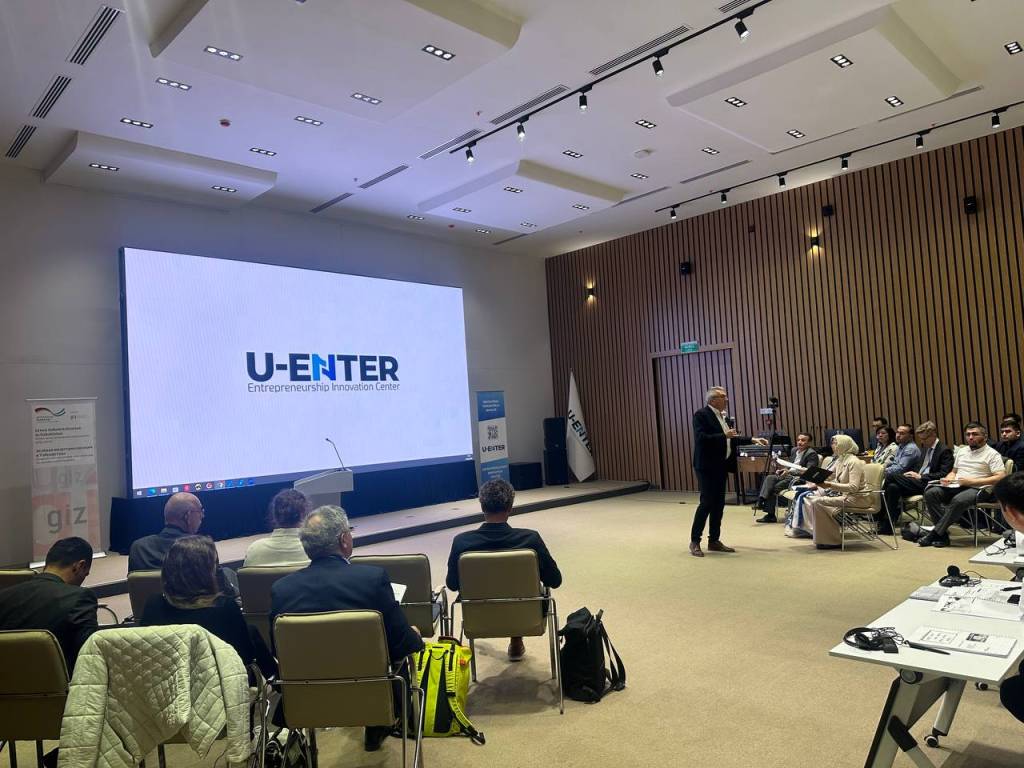
At the workshop in Tashkent, detailed information was provided on the project’s goals and objectives to develop the green private sector.
The workshop, organized jointly with GIZ and the Uzbekistan Textile and Garment Industry Association, was attended by representatives of business development services, specialists in environmental management and engineering, and experts from the UNIDO.
As noted at the event, ensuring sustainable development and reducing negative environmental impacts is becoming increasingly important. Improving the environmental situation, increasing the competitiveness of Uzbekistan companies, and reducing carbon dioxide emissions by 10% based on the proposed solutions, taking into account the sustainable use of natural resources, the division of economic growth, and the use of natural resources, are some of the important steps towards creating conditions for the country’s long-term development.

Shakhzoda Kuchkarova, Head of the Information Service of the Uzbekistan Textile and Garment Industry Association and national expert on the project, informed the UzA correspondent about the project’s importance.
– The project “Development of the Green Private Sector in Uzbekistan” will be implemented in the textile and construction industries, – says Ms. Kuchkarova. – It is aimed at supporting Uzbekistan’s efforts to develop green industrialization, introduce energy and resource-saving production processes and create conditions for the long-term division of economic development and the use of natural resources. At the workshop, experts presented the project’s goals, participants, timing, directions, and strategy. Representatives of KNAUF, MexMash Namangan, Akbarali Textile, and Thermozon made presentations.
The project consists of four phases. The first is launching systems and distributing resources.

The second is individual support from companies. We aim to connect each participating company with a selected business development service provider, offer personalized support, and assess the potential for emissions savings.
The third is analyzing and improving resource use. Improvements will be proposed in areas such as raw materials, energy, water, and waste treatment.
The fourth phase is the preliminary assessment of companies. Before matching companies and suppliers, an evaluation will be carried out to understand the companies’ operational and environmental aspects.
In short, the project aims to increase the competitiveness of Uzbekistan companies and reduce carbon dioxide emissions by 10 percent.
Interviewed by Nasiba Ziyodullayeva, UzA